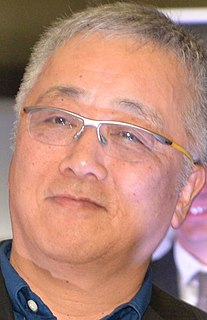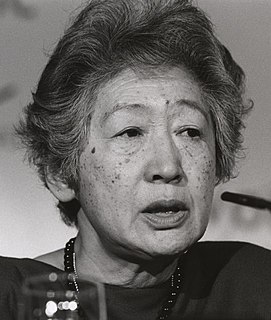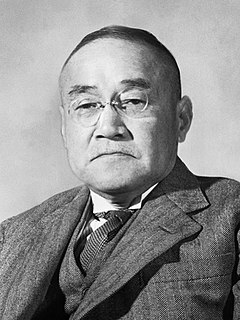A Quote by Fujio Mitarai
In the 1970s, Japan moved into the U.S. turf with its televisions, cars, chips, and steel. But if you think about it, the only business Japan destroyed was the U.S. television industry.
Related Quotes
The industry in Japan moving toward CGI is not as severe and extreme as in the U.S. The animation industry in the U.S. is firing 2D animators and closing those studios, but I think it's possibly because the national traits of the U.S. prefer super-realism. Since Japan is a country that prefers plane vision, I don't think we will leave 2D and substitute hand-drawing with CGI entirely.
I really love Japan, and I liked living there very much, and there are so many terrific things about Japan. However, I do think what's amazing is that Japan really prides itself on being monoracial. It doesn't have the same kind of idea as in the U.K. or Canada or the United States, in which the idea of diversity is a strength.
Japan's diplomatic efforts could have had a broader international perspective. Relations with the U.S. are, of course, the cornerstone of Japan's diplomacy, but the U.S. acts on its global strategy. For instance, Washington suddenly got closer to China in the early 1970s as part of its strategy against the Soviet Union.
Japan used to beat China routinely in wars. You know that, right? Japan used to beat China, they routinely beat China. Why are we defending? You know the pact we have with Japan is interesting. Because if somebody attacks us, Japan does not have to help.If somebody attacks Japan, we have to help Japan.


































